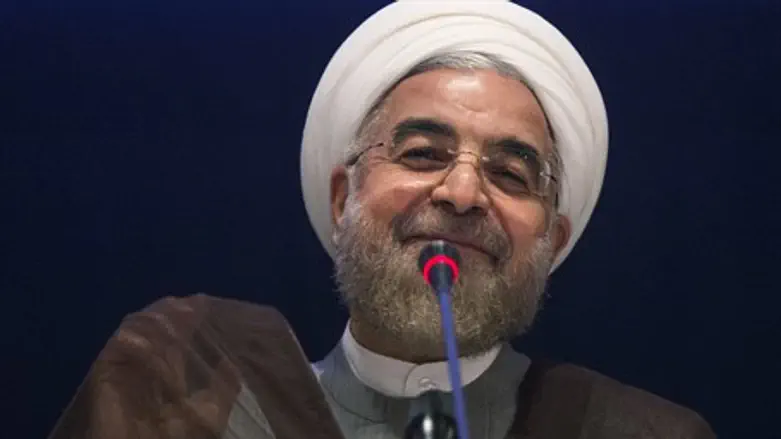
Iranian President Hassan Rouhani on Sunday said that he is ready to discuss a "plan of action" for Syria's post-war future after the Islamic State (ISIS) group is defeated, reports AFP.
Iran, which along with Russia is allied with President Bashar Al-Assad in the war, has until now been kept out of UN diplomatic efforts to piece together a political solution for Syria.
The Islamic Republic is Assad's key regional ally, providing him with financial and military support.
Iran’s former Iranian President Mahmoud Ahmadinejad personally sanctioned the dispatch of officers from the Iranian Revolutionary Guards to Syria to fight alongside Assad’s troops, though Assad has denied there are any Iranian troops in Syria.
"That is not a problem for us from right now, to start holding discussions and dialogues so as to determine and reach the conclusion of the next plan of action after the terrorists are driven out that territory," Rouhani was quoted as having said in an interview to NPR radio on Sunday.
"But we must all act in unison and have a formula that is required to drive out the terrorists, immediately," he added.
Rouhani is expected to address the crisis in Syria in his speech to the UN General Assembly on Monday, after President Barack Obama and Russian leader Vladimir Putin take the podium.
The Iranian leader said his country was ready to discuss "the upcoming options" and added that the Syrian government should be included to "reach a plan of action."
Western powers are seeking to enlist Iran in a new strategy to address the crisis after Russia beefed up its military presence in Syria in a bid to gain the upper hand on the future political transition.
The West has softened its demands for Assad to leave power, signaling that the president could stay on in an interim role as part of a two-stage transition.
Rouhani added that the Syrian people must "have the last word and most important word" on the future of the county, in reference to elections that could cap an interim transition.
(Arutz Sheva’s North American desk is keeping you updated until the start of Sukkot in New York. The time posted automatically on all Arutz Sheva articles, however, is Israeli time.)
